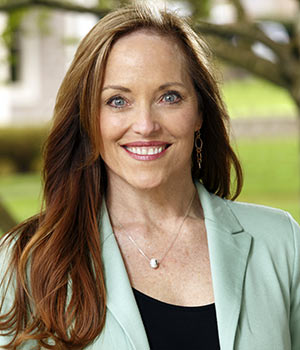I grew up in an entrepreneurial family and started working in my parent’s family-owned bookkeeping business when I was 13 years old. Throughout my professional career, I have worked in a number of family owned businesses; some have been wonderful experiences, and some have been trainwrecks. I have learned some things along the way.
Over the many years we have owned and operated Westby Associates, Inc., I have been asked what it’s like owning and working alongside my husband on a daily basis. How is it possible to own a business with your significant other while maintaining a healthy relationship? Who’s the boss? How are you still married? Are you always talking about work? I can tell you that after 18 years of owning our consulting business, we are still happily married after 20 years. How is this possible? We are committed to making it work and, of course, we have some tried and true rules we live by.
- Marriage first – although our business is extremely important to not only ourselves, but our staff, our nonprofit clients and our community, our marriage comes first. At the end of the day, no matter what happens in our business, we are committed to making our marriage the priority. There are three things we do to keep this in check:
- Weekly date nights; no exception.
- Travel. And when traveling, unplug. (Mike is great at unplugging. Cell phone turns off.)
- Play. Life can’t be all about work all the time. (I rock at this.)
- Be clear about your roles –We each bring a unique set of skills to our consulting business. Here are some tips for success:
- Be patient. It takes time to determine who is best at each task.
- Self-evaluate. You need to be willing to look at both your strengths and areas that need growth. Be willing to give time to developing yourself. We all have gaps in our abilities and that’s what my business partner and staff are here for.
- Check your ego at the door. It’s not personal, it’s business. (Although when you work with the love of your life, it can and will feel personal at times).
- Stay flexible. We are ever changing, every growing people. What worked five years ago may not work today. You need to be able to course correct or delegate if necessary.
- Maintain good boundaries – Maintaining good boundaries builds trust, respect and credibility with each other and with our staff. This is crucial to not only a successful business but also a successful marriage. But how?
- We keep work at work and home at home. Work conversations may bleed over into date night. (Bonus: it’s a business expense, however; with the new tax code it’s a non-deductible expense!) We always have a cut off where we say, “no more business.”
- We stay in our own lane (though I’m still working on this one). It’s very easy to identify when my partner isn’t handling something the way I would. We each have our own communication style and timeline in which we act. When we have worked to establish clear roles within our company, lane violations will not only confuse staff members it also delivers a message to our staff and to my partner that I do not have faith or trust in his abilities. It’s disrespectful, which leads me to the final “tried and true” rule.
- Respect one another – Although we are not privy to each other’s daily work flow, we have faith in each other that every day we will:
- Respect and accept that we each have our own work style.
- Work hard – we both bring our A-game as best as we can.
- Have integrity – honesty IS the best policy.
- Communicate as equals – we both have equal voice and listen to one another, not always patiently, but we do listen.
As we apply the above four tried and true rules to the best of our ability, we can avoid common trip wires and deescalate power struggles that inevitably surface while working so closely with a life partner.
It’s not easy, but it’s well worth the effort!
The answer to the big question… who’s the boss? My husband and I will both agree – I am.
Westby Associates, Inc. is a Vancouver-based, regional consulting firm that specializes in nonprofit fund development through strategic planning, board and staff development, feasibility and market studies, and comprehensive campaigns focused on capacity, capital, and endowment initiatives.


